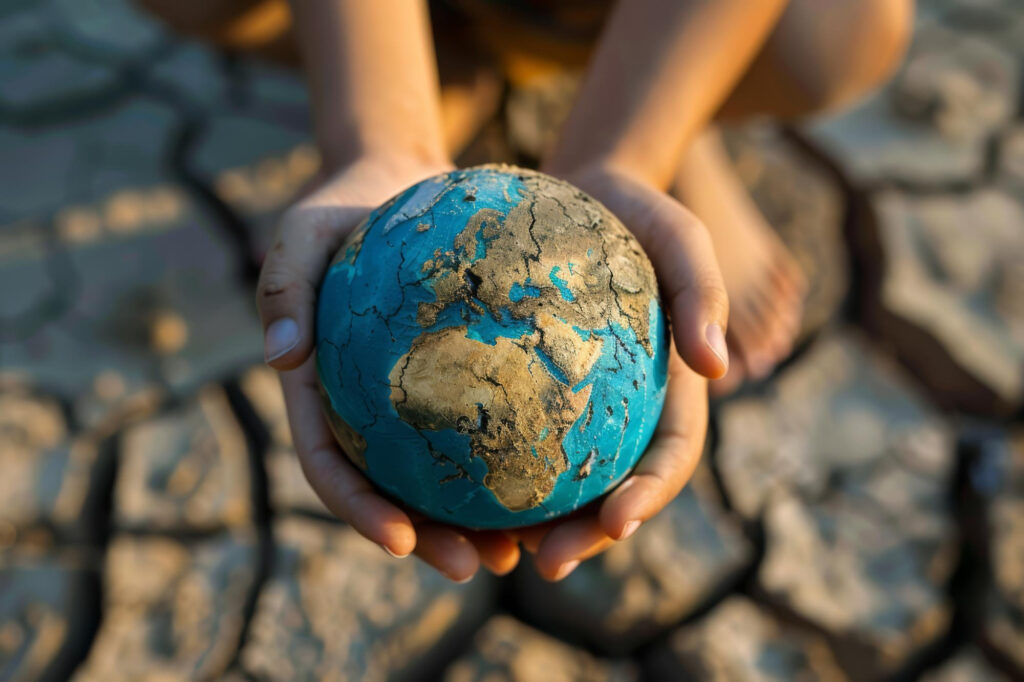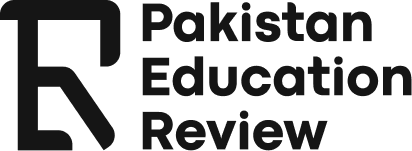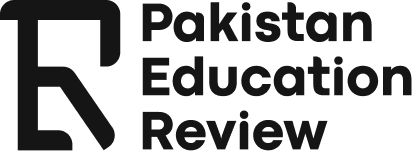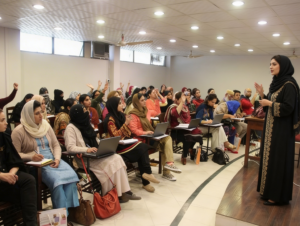For decades, educational goals have been limited to the bare minimum, aiming to achieve high scores in final examinations. The myopic focus has, consequently, resulted in generations after generations being excellent at memorization, or as we notoriously call it, ‘rote memorization,’ rather than truly contributing to the system for long-term survival. The true goal of education should be to nurture responsible, empathetic individuals who contribute positively to their communities and the nation.

Educational institutions must evolve into platforms that teach academic subjects and also instill civic responsibility, practical life skills, and environmental consciousness. Raising the standard of education is directly tied to increasing accountability in society. It is long overdue that we reform education into a dynamic system that reflects and fosters real-time challenges confronted by Pakistan at the federal, provincial, and even local levels. Educational institutions now have a major role to play in drawing attention to these pressing issues. Schools, colleges, and universities must begin integrating urgent, real-world issues into both curricula and extracurricular activities and promote a sense of responsible citizenship through awareness in the educational curriculum.
Several critical areas must be fully integrated into the syllabus to effectively address these pressing challenges:
Climate Change
Pakistan has been ranked as the eighth most vulnerable nation on the Global Climate Risk Index (by Germanwatch). Following the devastating 2022 floods nationwide, Pakistan became the most affected country by climate-induced events. The area inundated by mangrove forests in Pakistan was once around 249,486 hectares (ha) in the 1960s. The distressing climate shifts are a stark reminder of the urgency for transformation. Education must equip citizens with an understanding of the science of climate change and with the responsibility to drive solutions. Practical initiatives such as afforestation, waste management, and water conservation activities should be made mandatory.

Economic Literacy: Investment and Savings
Pakistan continues to have one of the lowest investment-to-GDP ratios, with a mere 13% of GDP, which is significantly lower compared to regional peers such as India (33%), Bangladesh (31%), China (41%), and Indonesia (31%). One significant factor contributing to this low investment rate is the limited financial and economic literacy among the population. Without a foundational understanding of savings, budgeting, and investing, individuals are less likely to participate in economic activities that drive growth. This lack of financial awareness hampers personal financial stability as well as restricts the flow of capital into productive investments. By integrating financial/economic literacy into school curricula, Pakistan can cultivate a generation capable of making informed financial decisions, thereby fostering a culture of investment and economic resilience.
Vocational Training and IT Skills Development
A strong emphasis must be placed on teaching technical skills such as software development, cybersecurity, and data analytics. These fields offer substantial opportunities for growth. Schools and universities should develop partnerships with industry leaders to provide hands-on training, internships, and certification programs. This will help bridge the skills gap and ensure that students are ready to enter the workforce with relevant, marketable skills.

Entrepreneurship
Another key area of economic literacy is entrepreneurship. Given Pakistan’s high unemployment rate of 22% in 2023, students must be equipped with the skills to create their own businesses. Educational institutions should foster an entrepreneurial mindset by teaching students how to develop business plans, secure financing, and manage operations. By providing students with the tools to succeed as entrepreneurs, Pakistan can create a more dynamic and resilient economy.
Universities as Anchors of Change
Universities play an indispensable role in shaping the future of any nation. Beyond conducting research, universities must actively contribute to addressing the country’s most pressing issues through:
Research and Innovation: Universities should act as hubs of innovation, conducting research that addresses national challenges such as climate change, energy sustainability, and economic development. By engaging students in these research projects, universities can encourage them to think critically and find solutions that benefit society.
Advocacy and Awareness: Universities are uniquely positioned to advocate for change. They should organize awareness campaigns on climate change, economic resilience, and other urgent issues. Through public lectures, workshops, and conferences, universities can engage the broader public in discussions about Pakistan’s future.
Training and Capacity Building: University graduates must be equipped with the skills to lead their communities. By offering training in leadership, governance, and project management, universities can help students develop the capacity to implement real-world solutions.
Demonstration Projects: Universities can also play a role in demonstrating sustainable practices. For example, university campuses can implement their own green initiatives, such as solar power, rainwater harvesting, and sustainable agriculture projects. These projects can serve as models for other institutions and communities to follow.
Governance and Provincial Responsibility
The role of provincial governments must be emphasized after the 18th Constitutional Amendment, when education, along with 46 other subjects, was transferred from the federation to the provinces as a symbol of autonomy. This shift has exposed governance gaps, and education statistics have been deteriorating since then. Provincial governments must take ownership of education reform, aligning curricula with local realities while upholding national quality standards.
The role of provincial governments is not simply administrative but transformational, integrating climate resilience, economic literacy, and civic responsibility into mainstream education. Without such efforts, standards will continue to deteriorate.

From Idealism to Pragmatism
Pakistan has a long way to go in transforming lofty ideals into practical realities. Implementing curriculum reforms, workshops, and demonstration projects requires consistency and seriousness, not one-off initiatives. Communicating significant messages—whether about climate resilience, responsible citizenship, or financial literacy—must become a rigorously pursued national priority. Universities can play a pivotal role in tackling these existential threats at the individual and community levels through advocacy, education, training, capacity building, conducting research projects, and awareness training.

The choice is stark: continue producing citizens disconnected from their environment and economy, or reimagine education as the blueprint for resilience. The path forward demands urgency, commitment, and collaboration across all levels of society.
Disclaimer: Any opinions expressed in this article do not necessarily reflect the opinions of the Pakistan Education Review. This content is meant for informational purposes only.

About the Author:
Uzma Aftab is an experienced researcher specializing in macroeconomics and social issues, currently working at a leading think tank in Karachi. Her work examines the intersections of policy, economics, and societal development, with a focus on promoting informed and inclusive approaches to economic reform and social progress.







